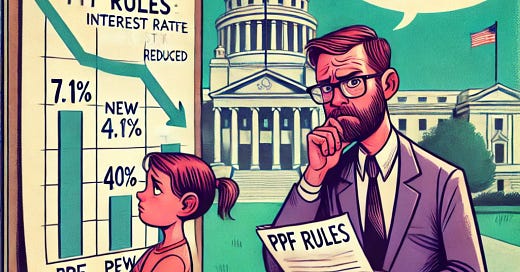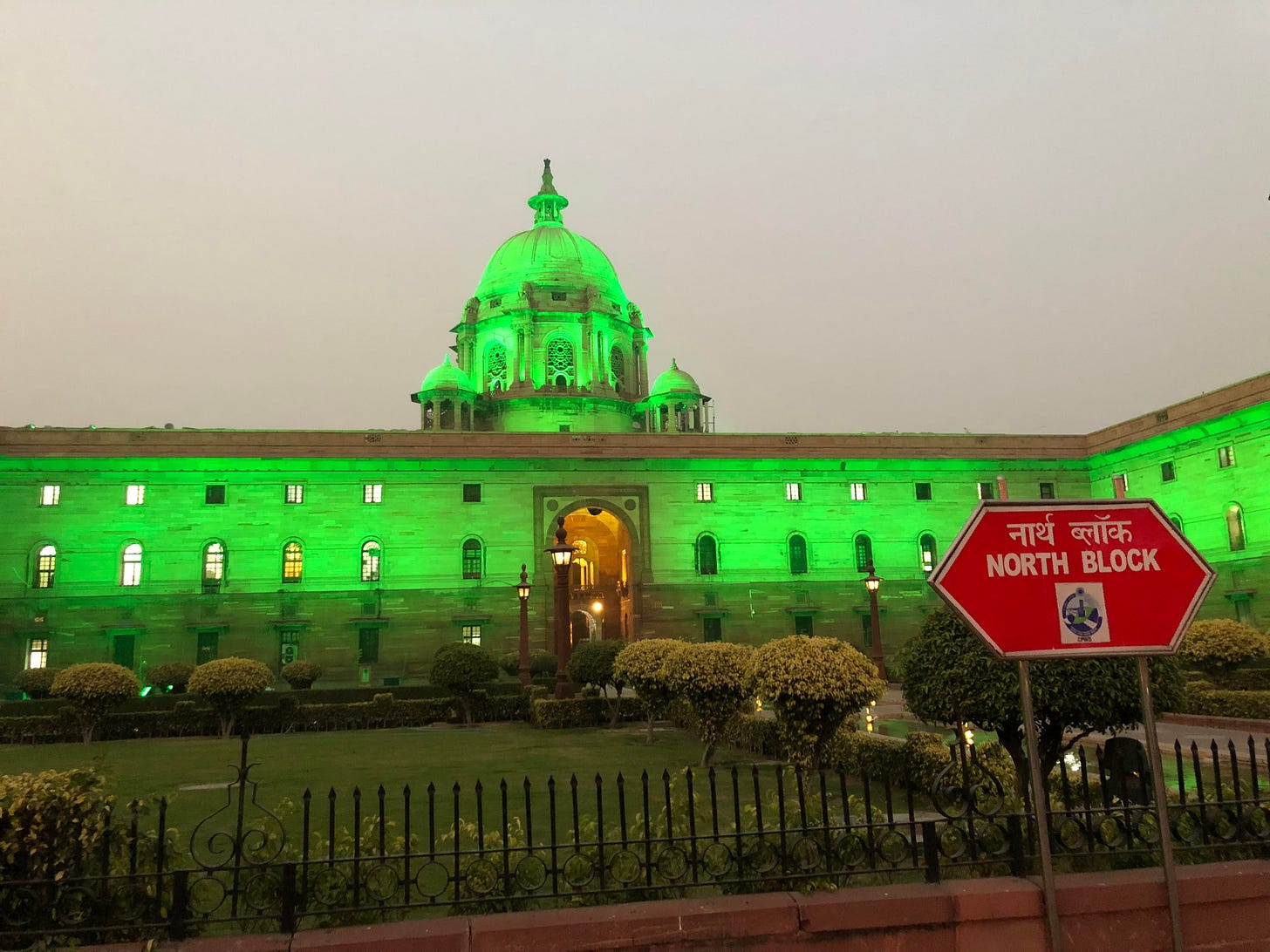Amendment in the PPF Rules: Shortchanging the Minors and NRIs
The amendment, effective from 1st October, 2024, hits the minors and NRIs very hard.
Amendment in the PPF Rules: Shortchanging the Minors
The most recent amendments to the Public Provident Fund (PPF) rules, effective from 1st October 2024, have introduced significant changes that adversely affect accounts held in the name of minors and Non-Resident Indians (NRIs). While the government may view these adjustments as a streamlining of the system, they could have far-reaching consequences for families and investors, particularly those who have relied on the PPF for its attractive interest rates and tax benefits, with the most notable being the complete exemption of accrued interest from income tax.
This article critically examines these changes and their potential impact on affected groups, especially minor children.
Changes for Minor PPF Accounts
Under the new rules, PPF accounts opened in a minor's name will earn interest at the rate applicable to Post Office Savings Accounts (POSA) until the minor turns 18. Once the account holder reaches adulthood, the standard PPF interest rate will apply. Additionally, the maturity period for these accounts will now be calculated from the date the minor becomes an adult, delaying both the intended benefit of compound interest over time and the option for flexible five-year extensions once the initial 15-year period elapses.
Currently, the PPF interest rate stands at 7.1% per annum, whereas the POSA rate is significantly lower at 4% per annum. This change substantially reduces the potential for long-term growth during the crucial early years of investment, when compound interest can significantly enhance the final corpus. This is especially true in cases where parents opened PPF accounts for their children immediately after birth, potentially allowing up to 18 years of growth under the higher PPF interest rate.
A Misstep in Supporting Parents' Financial Planning
For parents, this reduction in interest rates is likely to be seen as a serious drawback. Many parents have relied on PPF accounts as a long-term savings tool for their children's education or other future needs, due to its tax-free status and relatively high interest rates. The new rule effectively downgrades the benefits of early financial planning, potentially impacting the growth of funds set aside for their children.
It is important to note that the maximum amount one can deposit in a PPF account per year is ₹1,50,000. While this sum is not astronomical, it offers parents a valuable opportunity to earn tax-free returns and build a secure financial base for their children's future. The tax benefits, along with the higher interest rate, made PPF an attractive and dependable choice for long-term savings. With the reduction of interest for minors, this option is no longer as appealing. Additionally, the income earned in a minor’s PPF account is clubbed with the parent’s income, meaning it’s already factored into the tax bracket of the parent with the higher income.
This move appears to be a setback for those who had the foresight to begin saving early for their children’s future, as it diminishes the growth potential of the very funds they intended to secure.
Lack of Exit Option for Parents: An Unfair Oversight
In light of the sharp reduction in interest rates from 7.1% to 4% for PPF accounts held by minors, it would have been fair, just, and equitable for the amended rules to provide an option for parents or guardians to withdraw their funds, along with accrued interest, on an optional basis. Such a provision would allow them to reinvest the modest savings of their children in potentially more rewarding avenues, such as equity markets or mutual funds. These options not only offer the possibility of greater growth but also come with the added advantage that the appreciation of the stocks themselves is not taxed until they are sold.
A minor could then hold these investments until reaching adulthood, at which point they could make an informed decision about their financial future. Moreover, the capital appreciation in these investments would not attract any immediate tax. Unfortunately, the amendments fail to offer this flexibility, leaving parents and guardians locked into a less advantageous scheme without the freedom to make better financial decisions for their children. This oversight adds to the perception of the changes being both unfair and unilateral.
Impact on Income-Earning Minors: A Missed Opportunity
In today’s rapidly evolving world, minors can earn income independently through various avenues such as modelling, becoming influencers, or even working as employees and interns, particularly with the rise of opportunities in tech and artificial intelligence. In such cases, their income is not clubbed with that of their parents and they are taxed in their own right. Without the attraction of the 7.1% interest rate and the accompanying tax breaks, these income-earning minors would face a significant disadvantage. At a time when the top political leadership frequently speaks of harnessing the demographic dividend, it is unfortunate that these talented and industrious minors are being deprived of a fair and legitimate savings-cum-tax-break scheme. This oversight not only limits their potential for wealth accumulation but also sends a contradictory message to young earners who contribute meaningfully to the economy.
Changes for NRI PPF Accounts
Non-Resident Indians (NRIs) are also affected by the new amendments. NRI-held PPF accounts will now earn interest at the POSA rate of 4% until 30th September 2024. After this date, if the account holder does not meet the specific residency criteria outlined in Form H, the account will cease to earn any interest. This is a major shift for NRIs who have relied on PPF as a safe, tax-free, and attractive investment option.
NRI Concerns and Potential Loss of Interest
From an NRI perspective, these changes are both restrictive and potentially harmful to their financial planning. Many NRIs have maintained their PPF accounts as a means of staying financially connected to India, benefiting from the scheme's traditionally higher interest rates and security. The new rules now put an additional burden on NRIs to update their residency status or face the prospect of losing interest earnings altogether.
For NRIs who are loyal contributors to the Indian financial system, this policy shift may seem unfair. The potential for PPF accounts to stop earning interest altogether could lead many NRIs to withdraw from the scheme, reconsider their investments, and possibly reduce their participation in India’s financial instruments. This could also result in a loss of foreign savings and investment, which would not only affect individual investors but also reduce the overall flow of foreign funds into the Indian economy.
PPF: Not an Instrument of Unfair Tax Breaks
As mentioned before, the maximum annual deposit of ₹1,50,000 in a PPF account hardly represents an opportunity for earning huge tax breaks or for amassing astronomical tax-free sums. The PPF was designed to promote a culture of saving among Indian citizens and encourage long-term financial security. Despite the relatively small annual cap, the scheme offered a tax-efficient and secure way to grow wealth over time. The new rules undermine this objective, particularly for minors, where the lowered interest rate for the formative years of the account severely curtails its effectiveness as a long-term savings instrument.
Summing Up
The amendments to the PPF rules, particularly those impacting accounts held by minors and NRIs, represent a significant change in a well-established savings instrument. While the government may have intended to simplify account management, the result seems to be a considerable reduction in the attractiveness of the scheme for two key groups of investors.
Parents, who previously saw PPF as a reliable way to save for their children’s education or future financial needs, may now feel discouraged by the lowered interest rates. Meanwhile, NRIs, who often look to PPF for stable and tax-free returns, could see these changes as a reason to withdraw their funds and explore alternative investment options.
Ultimately, the changes seem to penalise early financial planning, especially for child prodigies, and reduce the long-term benefits of what was once a dependable savings vehicle. The government’s decision may lead to a reassessment of PPF’s role in the financial strategies of many families and NRIs, potentially prompting a shift towards other instruments that offer better returns and more flexibility1.
My Plea to the FM
Madam Finance Minister, as a grandfather who encouraged his son to open a PPF account for his newborn, I must express my disappointment with these recent changes. I kindly urge you to reconsider these amendments, ensuring that our children receive the fair and encouraging interest rates they deserve for their future savings.
Request
If you think someone handling a minor’s PFF account needs to know about this development, please do share.
Note
The impact of the interest rate change on minor PPF accounts is significant.
To illustrate, consider a scenario where a minor has Rs 10 lakh in their account at age 10, with no further deposits made. After 8 years, at age 18, the balance would be approximately Rs 17,31,075 under the previous 7.1% p.a. interest rate. However, with the new 4% p.a. rate (equivalent to POSA), the balance would only reach about Rs 13,68,569.
This represents a substantial difference of Rs 3,62,506, or a 21% reduction in the total accumulated amount. The change effectively reduces the investment's growth from 73.1% to 36.86% over the 8-year period, significantly impacting long-term savings potential for minors' education and future needs.
This stark contrast underscores the need for parents to reassess their savings strategies in light of the new regulations.







